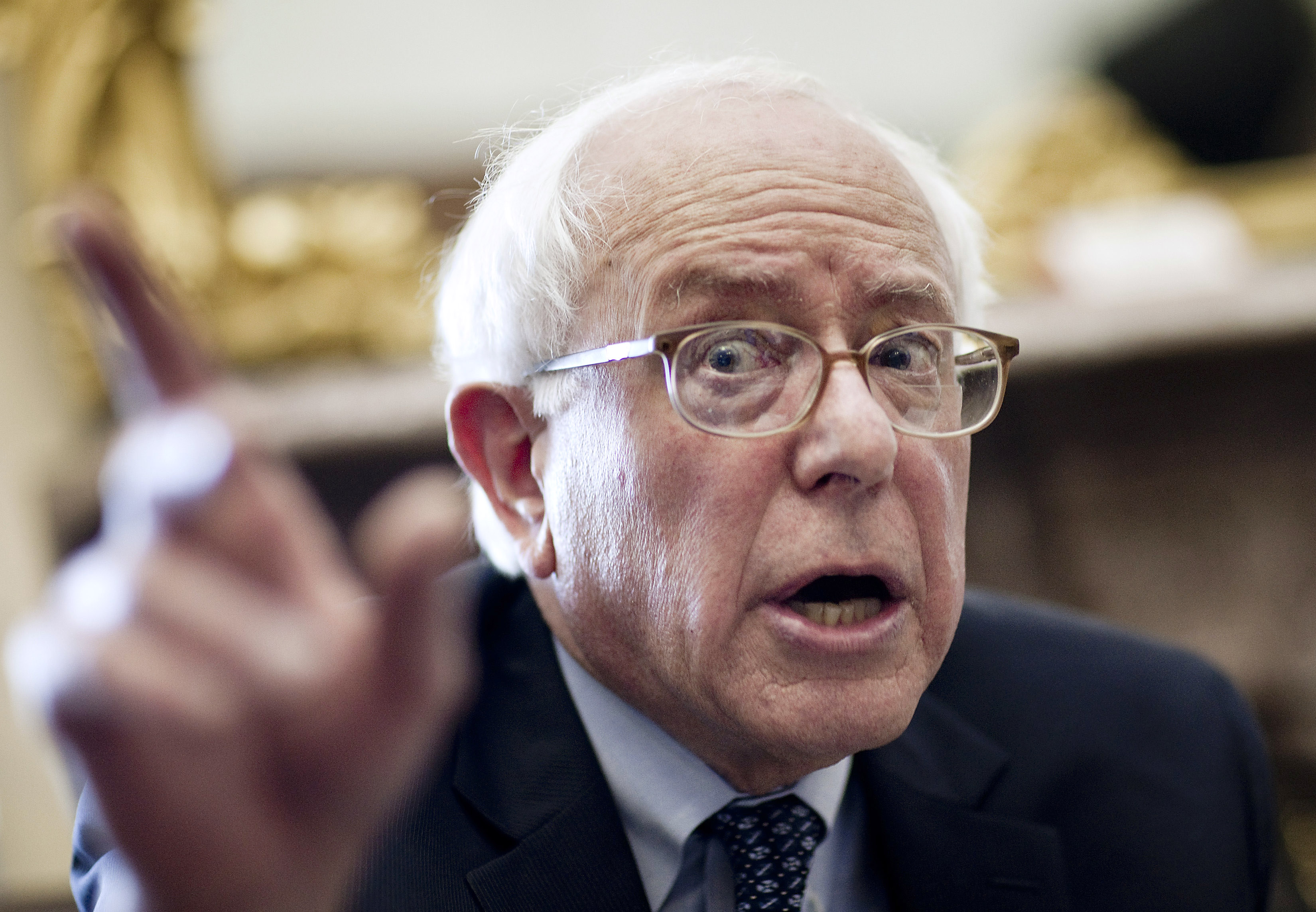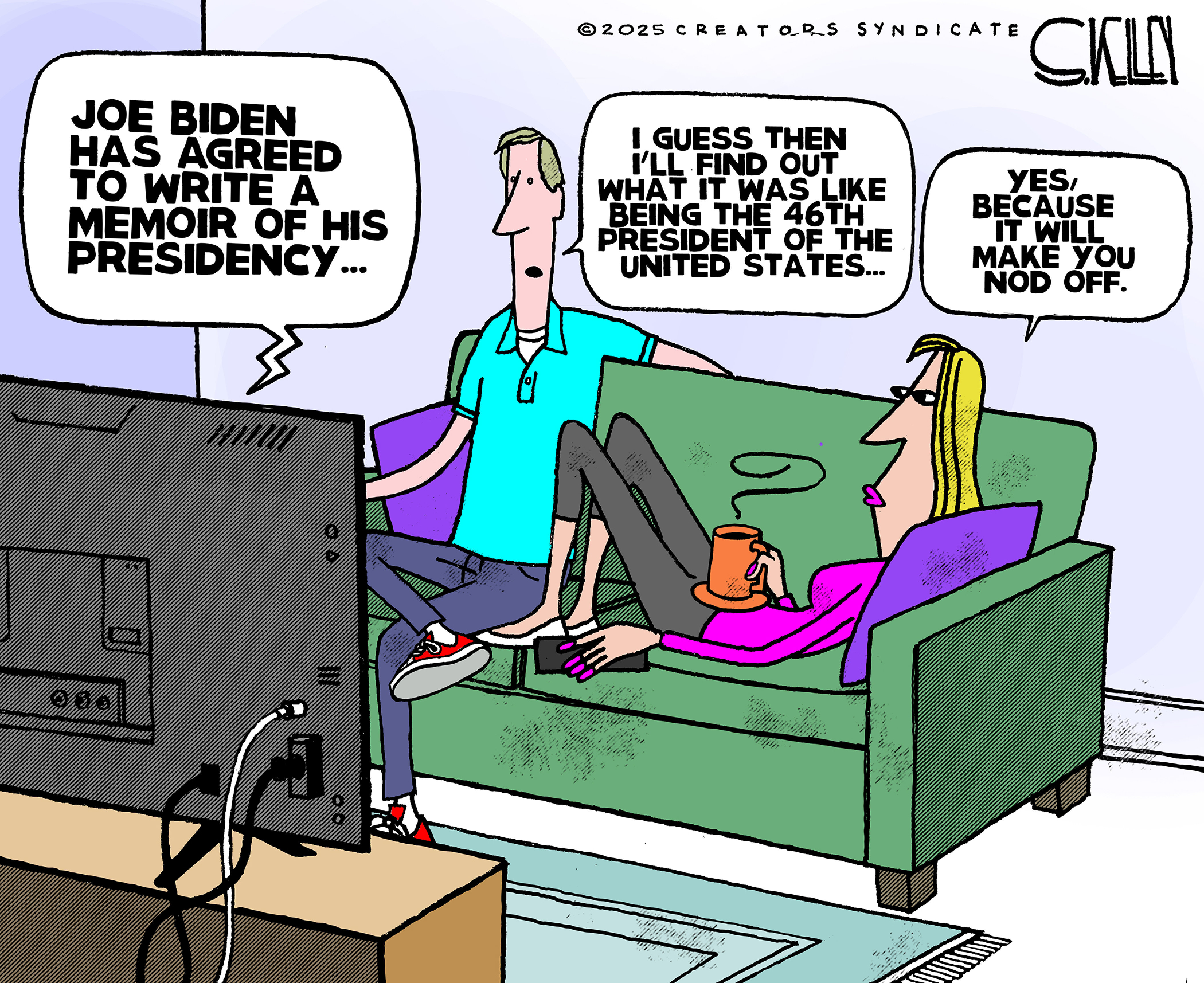Bernie Sanders needs to get serious about foreign policy
He'll have to work hard to control the Byzantine military bureaucracy


For most of the past year, the entire political class treated Bernie Sanders' primary challenge as a quixotic effort, doomed to fail — even many of his supporters. It's time to put that notion firmly to bed. Sanders eked out a virtual tie in the Iowa caucuses, and looks set to win the New Hampshire primary on Tuesday outright. Though he is still surely the underdog, he really and truly could win the nomination.
This means it's time for the press to start treating him with the seriousness due to the potential next president — i.e., less "Great moments in Bernie Sanders's hair" and more "Who would he appoint to cabinet positions?"
But that holds for the senator himself as well. When he was trailing by 50 points as a de facto protest candidate, his laser-like focus on economic inequality and plutocrats' control of the democratic process was perfectly reasonable. But now that he's nearly tied with Clinton in national polls, he needs to start bulking out his overall political worldview — particularly on foreign policy. He's got a sketch of some decent ideas, saying that the U.S. should be "tough but not stupid" in defeating ISIS (rather similar to President Obama), but so far it's been hesitant and rather haphazard, often talking around questions about withdrawing from Afghanistan and what to do about North Korea.
Subscribe to The Week
Escape your echo chamber. Get the facts behind the news, plus analysis from multiple perspectives.

Sign up for The Week's Free Newsletters
From our morning news briefing to a weekly Good News Newsletter, get the best of The Week delivered directly to your inbox.
From our morning news briefing to a weekly Good News Newsletter, get the best of The Week delivered directly to your inbox.
While Sanders has focused most of his ambitious political proposals on domestic policy — breaking the power of Wall Street, single-payer health insurance — the president's freedom of action is vastly larger on foreign policy. It's only right that Sanders should take this aspect of the presidency seriously.
Indeed, Sanders himself has articulated some of the reasons it is vital for him to do so. Hence, he doesn't need to abandon his overall political frame — on the contrary, it can be adapted to foreign policy with only a few alterations. Let's look at how he closed his speech after the Iowa caucus results came in:
No president, not Bernie Sanders, not anybody else, will be able to bring about the changes that the working families and the middle class of this country, that our children, that our seniors deserve, no president can do it. Because the powers that be — Wall Street with their endless supply of money, corporate America, the large campaign donors — are so powerful that no president can do what has to be done alone. [Bernie Sanders, via Slate]
Something very similar is true of America's sprawling defense apparatus. The Pentagon, with its $585 billion budget and millions of contractors, are a huge part of why northern Virginia has the richest counties in the nation. Add to that the tangled complex of intelligence agencies (so ludicrously over-classified that even their topline budget numbers are secret, though the total came to $53 billion in 2012) whose lawless incompetence does not even slightly diminish their enormous political clout, and you've got a force to be reckoned with.
Therefore, there is good reason to think that should Sanders walk into the White House without some very firm foreign policy views, plus the vigorous support of the grassroots, all that military-industrial complex power will overwhelm whatever ideas he has. The vastly expensive and constant efforts towards worldwide military hegemony will continue unabated.
It's probably too much to expect Sanders to hop on board with the leftists who have been making a sustained moral critique of U.S. foreign policy adventurism and creeping police state since World War II. His instincts seem to be slightly more dovish than President Obama's — but given that Obama has entrenched and even deepened much of the Bush approach on national security, that's not saying much.
However, one does not need to fervently denounce the moral atrocity of, say, the CIA-backed civil war in Guatemala to formulate a reasonably good foreign policy approach. Because by far the most striking fact of America's many ongoing military operations is that they are enormously expensive, kill thousands of innocent bystanders, and accomplish little to less than nothing for national security. Our alliance with Saudi Arabia and knee-jerk support of their disastrous ongoing war in Yemen (to pick one example out of many) is harming, not helping, American interests. Hence, a realistic, tough-minded focus on American interests is a decent perspective that does not require a head-on confrontation with the military-industrial complex. Far from perfect, but a decent improvement on the status quo.
It's also a huge improvement over Hillary Clinton's views. Her support from Henry Kissinger, of which both she and her husband have recently boasted, is a perfect example. Among various other atrocities, Kissinger ran an illegal bombing campaign in Cambodia that killed between 50,000 and 150,000 civilians; the ensuing political chaos opened the door for the Khmer Rouge, which eventually killed another 1.7 million. It was all completely pointless from an American standpoint. The fact that Clinton feels comfortable hobnobbing with such a monstrous person is as good a demonstration of the flaws in her hawkish foreign policy perspective as one could ask for.
Sanders has sounded some of these notes during the debates and on the campaign trail. But he always sounds more hesitant and less confident than he does when discussing economic inequality, or his vision of American society, and generally spends less time outlining his views on foreign affairs. He owes it to himself, his supporters, and the innocent victims of American military bungling overseas to get a confident perspective here.
A free daily email with the biggest news stories of the day – and the best features from TheWeek.com
Ryan Cooper is a national correspondent at TheWeek.com. His work has appeared in the Washington Monthly, The New Republic, and the Washington Post.
-
 July 26 editorial cartoons
July 26 editorial cartoonsCartoons Saturday's political cartoons include Joe Biden's memoir, PBS funding, and an Obama-Trump comparison
-
 5 low ratings cartoons about the Late Show cancellation
5 low ratings cartoons about the Late Show cancellationCartoons Artists take on early warning signs, the Gen Z stare, and more
-
 Connie Francis: Superstar of the early 1960s pop scene
Connie Francis: Superstar of the early 1960s pop sceneIn the Spotlight The 'Pretty Little Baby' and 'Stupid Cupid' singer has died aged 87
-
 The last words and final moments of 40 presidents
The last words and final moments of 40 presidentsThe Explainer Some are eloquent quotes worthy of the holders of the highest office in the nation, and others... aren't
-
 The JFK files: the truth at last?
The JFK files: the truth at last?In The Spotlight More than 64,000 previously classified documents relating the 1963 assassination of John F. Kennedy have been released by the Trump administration
-
 'Seriously, not literally': how should the world take Donald Trump?
'Seriously, not literally': how should the world take Donald Trump?Today's big question White House rhetoric and reality look likely to become increasingly blurred
-
 Will Trump's 'madman' strategy pay off?
Will Trump's 'madman' strategy pay off?Today's Big Question Incoming US president likes to seem unpredictable but, this time round, world leaders could be wise to his playbook
-
 Democrats vs. Republicans: which party are the billionaires backing?
Democrats vs. Republicans: which party are the billionaires backing?The Explainer Younger tech titans join 'boys' club throwing money and support' behind President Trump, while older plutocrats quietly rebuke new administration
-
 US election: where things stand with one week to go
US election: where things stand with one week to goThe Explainer Harris' lead in the polls has been narrowing in Trump's favour, but her campaign remains 'cautiously optimistic'
-
 Is Trump okay?
Is Trump okay?Today's Big Question Former president's mental fitness and alleged cognitive decline firmly back in the spotlight after 'bizarre' town hall event
-
 The life and times of Kamala Harris
The life and times of Kamala HarrisThe Explainer The vice-president is narrowly leading the race to become the next US president. How did she get to where she is now?
